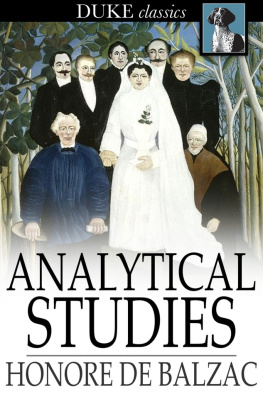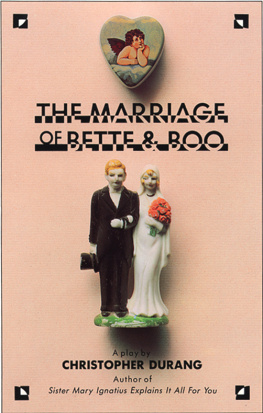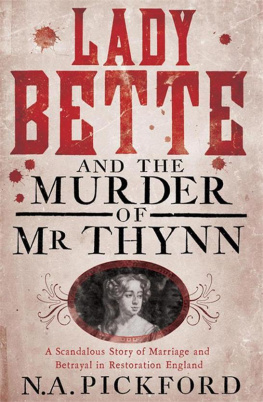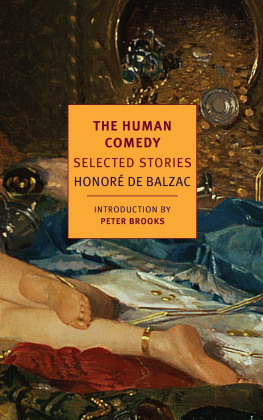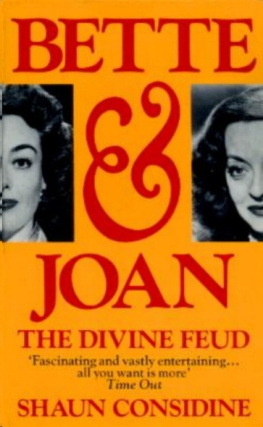OXFORD WORLDS CLASSICS
COUSIN BETTE
HONOR BALZAC was born in 1799 at Tours, the son of a civil servant. Put out to nurse and sent later to boarding school, he had, except between the ages of 4 and 8, little contact with home. In 1814 the family moved to Paris, where Honor continued his boarding-school education for two years, and then studied law at the Sorbonne. From 1816 to 1819 he worked in a lawyers office, but having completed his legal training he knew he wanted to be a writer. While his family gave meagre financial support he wrote a play, Cromwell, but it was a complete failure. He also collaborated with other writers to produce popular novels. During the 1820s he dabbled in journalism, and tried to make money in printing and publishing ventures, whose lack of success laid the foundation for debts that plagued him for the rest of his life.
In 1829 Balzac published his first novel under his own name, Le Dernier Chouan (later Les Chouans), and La Physiologie du mariage. In 1830 came a collection of six stories called Scnes de la vie prive. Self-styled de Balzac, he became fashionable in the literary and social world of Paris, and over the next twenty years, as well as plays and articles, wrote more than ninety novels and stories. In 1842 many of these were published in seventeen volumes as La Comdie humaine. Important works were still to come, but ill-health interfered with his creativity and marred the last years of his life.
In 1832, in his extensive fan-mail, Balzac received a letter from the Polish Countess Hanska, whose elderly husband owned a vast estate in the Ukraine. The next year he met Madame Hanska in Switzerland, and in 1835 the couple agreed to marry after Count Hanskis death. For seventeen years, with intermissions, they conducted a voluminous correspondence, until their marriage finally took place in March 1850. Balzac died three months later in Paris.
DAVID BELLOS is Professor of French and Comparative Literature at Princeton University. He is the author of George Perec. A Life in Words (Harvill, 1993) and is currently preparing a study of the film-maker Jacques Tati.
SYLVIA RAPHAEL taught French language and literature at the universities of Glasgow and London, specializing in nineteenth-century literature. Her translations include a selection of Balzacs short stories and his Eugnie Grandet and La Cousine Bette, as well as Sands first novel, Indiana. Sylvia Raphael died in 1996.
OXFORD WORLDS CLASSICS
For over 100 years Oxford Worlds Classics have brought readers closer to the worlds great literature. Now with over 700 titlesfrom the 4,000-year-old myths of Mesopotamia to the twentieth centurys greatest novelsthe series makes available lesser-known as well as celebrated writing.
The pocket-sized hardbacks of the early years contained introductions by Virginia Woolf, T. S. Eliot, Graham Greene, and other literary figures which enriched the experience of reading. Today the series is recognized for its fine scholarship and reliability in texts that span world literature, drama and poetry, religion, philosophy and politics. Each edition includes perceptive commentary and essential background information to meet the changing needs of readers.
Refer to the to navigate through the material in this Oxford Worlds Classics ebook. Use the asterisks (*) throughout the text to access the hyperlinked Explanatory Notes.
OXFORD WORLDS CLASSICS

HONOR DE BALZAC
Cousin Bette

Translated with Notes by
SYLVIA RAPHAEL
With an Introduction by
DAVID BELLOS


Great Clarendon Street, Oxford 0X2 6DP
Oxford University Press is a department of the University of Oxford.
It furthers the Universitys objective of excellence in research, scholarship,
and education by publishing worldwide in
Oxford New York
Athens Auckland Bangkok Bogot Buenos Aires Calcutta
Cape Town Chennai Dar es Salaam Delhi Florence Hong Kong Istanbul
Karachi Kuala Lumpur Madrid Melbourne Mexico City Mumbai
Nairobi Paris Sao Paulo Singapore Taipei Tokyo Toronto Warsaw
with associated companies in Berlin Ibadan
Oxford is a registered trade mark of Oxford University Press
in the UK and in certain other countries
Published in the United States
by Oxford University Press Inc., New York
Translation and notes material Sylvia Raphael 1992
Introduction and Appendix David Bellos 1992
The moral rights of the author have been asserted
Database right Oxford University Press (maker)
First published as a Worlds Classics paperback 1992
Reissued as an Oxford Worlds Classics paperback 1998
All rights reserved. No part of this publication may be reproduced, stored in a retrieval system, or transmitted, in any form or by any means, without the prior permission in writing of Oxford University Press, or as expressly permitted by law, or under terms agreed with the appropriate reprographics rights organizations. Enquiries concerning reproduction outside the scope of the above should be sent to the Rights Department, Oxford University Press, at the address above
You must not circulate this book in any other binding or cover
and you must impose this same condition on any acquirer
British Library Cataloguing in Publication Data
Data available
Library of Congress Cataloging in Publication Data
Balzac, Honor de, 1799-1850.
[Cousine Bette. English]
Cousin Bette / Honor de Balzac : translated by Sylvia Raphael.
p. cm.(Oxford worlds classics)
Translation of: La cousine Bette.
Includes bibliographical references.
1. Raphael, Sylvia. II. Title. III. Series.
PQ2165.C5E5 1992 843.7dc20 9124417
ISBN 0192836684
5 7 9 10 8 6 4
Printed in Great Britain by
Cox & Wyman Ltd.
Reading, Berkshire
CONTENTS
INTRODUCTION
Cousin Bette tells the story of the fall of the house of Hulot, plotted and precipitated by Lisbeth Fischer, a poor relative, the cousin Bette of the novels title. The Hulot family owes its standing in the fictional society of Balzacs novel not to aristocratic ancestry but to the careers of two brothers. In the reign of Napoleon I, between 1805 and 1815, Hector Hulot had risen to a senior post in the military administration of Alsace, and his brother had fought with distinction in Napoleons armies. The two survive the fall of France but are under-employed for fifteen years; they can only re-establish themselves fully after the July Revolution of 1830. The colonization of Algeria provides them with the opportunity to accumulate wealth to add to the prestige with which the Napoleonic past now endows them. But there is a worm in the apple. As he grows into middle age, Hector Hulot becomes increasingly obsessed with sexual conquest. By playing on that passion, Lisbeth, called Bette like a child or a servant, a poor and powerless spinster, a mere hanger-on in the outwardly splendid Hulot household, brings the family almost to its ruin. Cousin Bette is both a vast fresco of Parisian life in the first half of the nineteenth century, and a sharply-focused study of two contradictory human impulses: sexual desire, and the desire for destruction. Sigmund Freud, in his later works, presented
Next page




